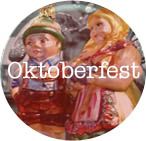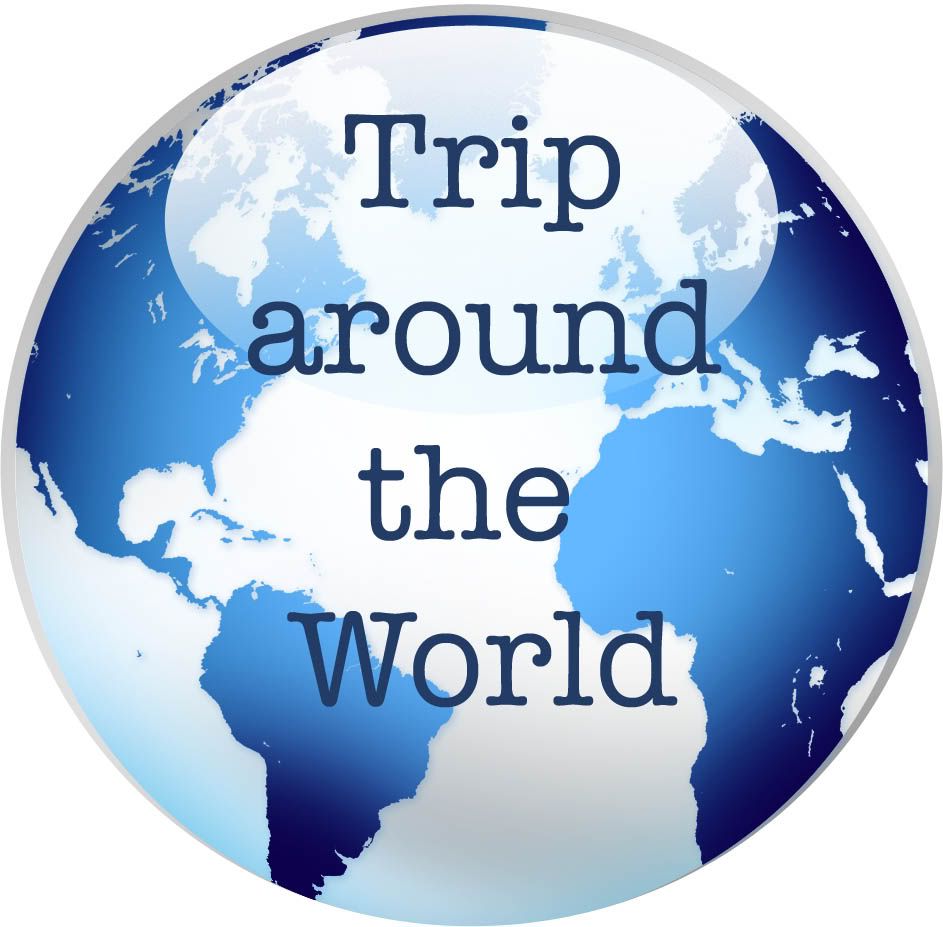Last night we had Chinese for dinner. I should call it American Chinese. Before moving to Germany I don't know if I assumed Chinese was the same around the world or if all countries even had Chinese restaurants. I don't think it really crossed my mind. I simply enjoyed my spring rolls, crab rangoon, and assorted dishes and that was that.
 |  |
Something that struck me as odd when I moved to Germany was that they had ethnic restaurants and to see people of various ethnicities speaking German. I know it sounds really naïve and even ethnocentric, but I appreciate being able to challenge beliefs that I didn't even realize I had. I was also surprised when Chinese or Indian in Germany didn't taste the same as it does in the US. That should come as no surprise, considering milk doesn't even taste the same, but everything I'd known as one thing now was supposed to encompass the things I knew before, as well as the new varieties. These are small things I never considered. During my art history studies, semiotics was one of my favorite areas - which is probably why I'm writing an entire post about this.
In the US I always assumed since it's a melting pot culture, there was a need for a large variety of restaurants. And since it's a country of immigrants, hearing people speak native tongues wasn't out of the ordinary. I've always known that Germany is not entirely German people, but it's something that was strange to observe and not to have thought about before. Did I think Germany was that mundane and boring that they only had German and Italian restaurants (simply because it's close to Italy), or that they wouldn't have Chinese restaurants because the Chinese population isn't as large as it is in the US?
I've come to understand in Europe, it's not uncommon to hear someone speak several languages nor is it seen as a big deal. If anything it's pretty standard. A part of me even wondered how other people were able to speak multiple languages and I wasn't. As if it was as simple as opening my mouth and making it happen. I know that these people had to learn the language for one reason or another, but I spent much of my life surrounded by classmates that spoke English and occasionally a second language at home, so that was the norm. Moving to Europe, and particularly a country with a different language, is an easy way to feel unintelligent and a bit delayed - like the kid that has to leave the group to go to tutoring. Fortunately I'm able to counter that and begin learning another language, even if I have a 20 year gap to play catch up. It still doesn't make it easy to feel like everyone else knows what's going on and to feel like an outsider.
For Stefan it's odd that Americans claim their heritage and have a lot of pride for countries they may not have even visited, simply because their great grandparents immigrated to the US. To him, if you're from America you're an American and not Irish, German, Native American and all of the other ethnicities that make up an American.
It's sad to me that the US is so ethnocentric to not encourage more foreign languages. I believe it's also due to a fear of losing it's 'Americanness'. With so many opposing views, religions, backgrounds, ethnicities, and ideas, there is a commonality in English and the freedom that America preaches. There is also an underlying fear of the unknown or not being able to understand one another. It's strange to see how much knowledge wasn't passed on in terms of languages, so my ancestors could conform to this new life that they fought so hard for.
I appreciate the confidence of the Scandinavian countries because they have television in English and subtitle their own language, in effect making their residents learn English, which furthers English as a universal second language. This doesn't help Americans or English speakers in having a superiority complex as they travel the world and think the other people are unintelligent if they cannot communicate in English, regardless of the other languages they speak.
I love languages and wish I was able to speak more, if anything to more clearly understand the people and places I travel, and to not be a tourist that expects everyone to cater to my needs in my language. It's a unique feeling to understand what's going on but to feel vulnerable. It's a challenge I believe all people should face at some point. It personally helps me understand others and also realize how a child would feel.
Viewing the US as an outsider is very enriching and I love attempting to see why it fascinates so many people. It's definitely a place of hope, as so many foreigners have come and created successful lives. It's also a place of overabundance. I notice this when I come home and the consumer in me takes hold. Things are inexpensive, well made, and there are plenty of options, sales, and new exciting things.
My mother in law has a poster in her house geared towards 'Ausländerfeindlichkeit' (xenophobia) that states:
Dein Christus ein Jude (Your Christ was Jewish)
Dein Auto ein Japaner (Your car Japanese)
Deine Pizza italienisch (Your pizza Italian)
Deine Demokratie griechisch (Your democracy Greek)
Dein Kaffee brasilianisch (Your coffee Brazilian)
Dein Urlaub tuerkisch (Your vacation Turkish)
Deine Zahlen arabisch (Your numbers Arabic)
Deine Schrift lateinisch (Your script Latin)
Und Dein Nachbar 'nur' ein Auslaender. (and your neighbor 'just' a foreigner?)
Another one says:
Wenn Du geboren wirst, bist Du Rosa. (When you were born you are pink)
Wenn Du aufwächst, bist Du Weiß. (When you grow up you are white)
Wenn Du in die Sonne gehst, bist Du Rot. (When you go in the sun you are red)
Wenn Du frierst, bist Du Blau. (When you freeze you are blue)
Wenn Dir schlecht ist, bist Du Grün. (When you are about to vomit you are green)
Wenn Du krank bist, bist Du Gelb. (When you are sick you are yellow)
Wenn Du stirbst, bist Du Grau. (When you die you are gray)
Und Du wagst es, mich einen Farbigen zu nennen? (and you dare to call me a colored person?)
I also read a sarcastic text that stated the following:
"Please give us your opinion on the lack of food in the rest of the world". No result was achieved, since the following problems were faced during the survey's implementation:
- In Africa no one knew what is "food"
- In Western Europe no one knew what is "lack"
- In Eastern Europe no one knew what is "opinion"
- In South America no one knew what is "Please"
- In the USA no one knew what is "the rest of the world"
Just some things to think about.
While I'm home I will be enjoying my American style ethnic dishes - particularly the fact that Mexican food does not entail corn, carrots, yogurt sauce, or marinara salsa.
A book I'd also like to buy while I'm here is called World in a City: Traveling the Globe Through the Neighborhoods of the New New York by Joseph Berger.
Things like that make me appreciate the diversity in America, however I hope not to be one of the Americans that don't know 'the rest of the world'.









2 comments:
Great post! And my husband also thinks it's ridiculous that my family members class themselves as Irish-American. My grandma belonged to an Irish-American club in Cleveland and went there to socialize every week.
Oh and Chinese food in England is really weird. I miss crab rangoon.
FYI, I really like the crab rangoon at the Cheesecake Factory.
Post a Comment